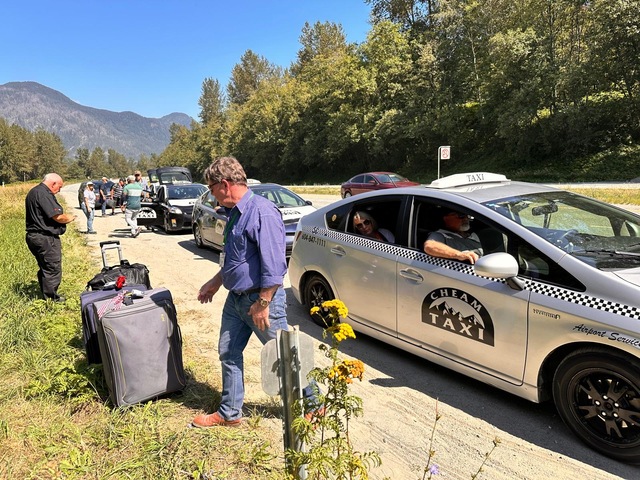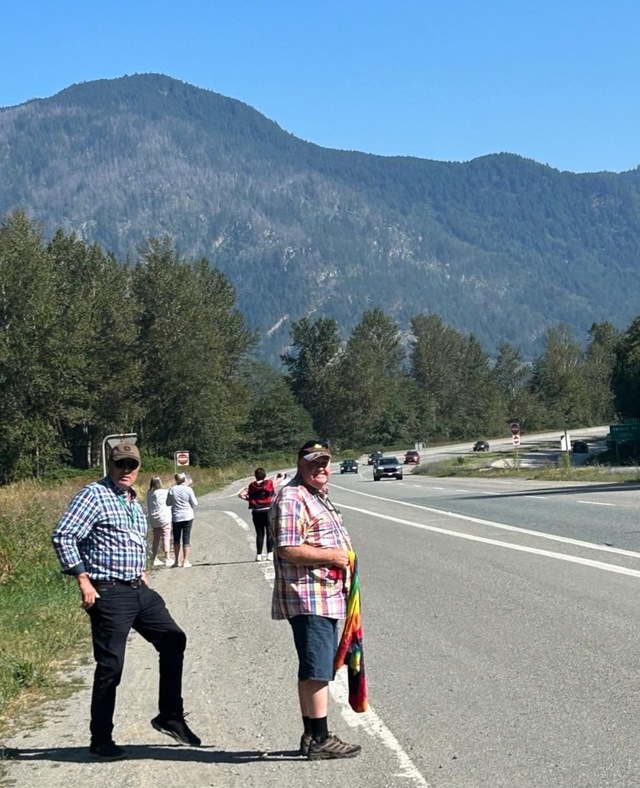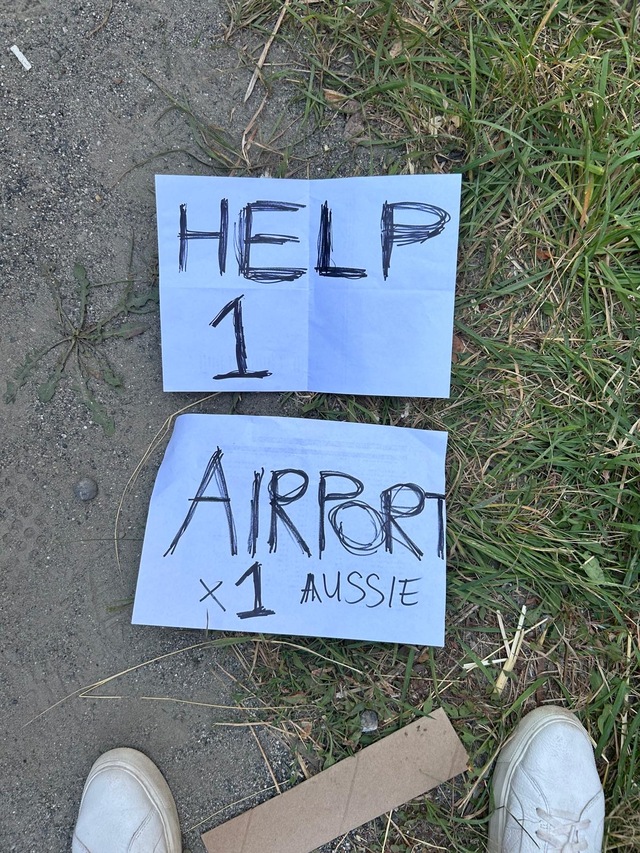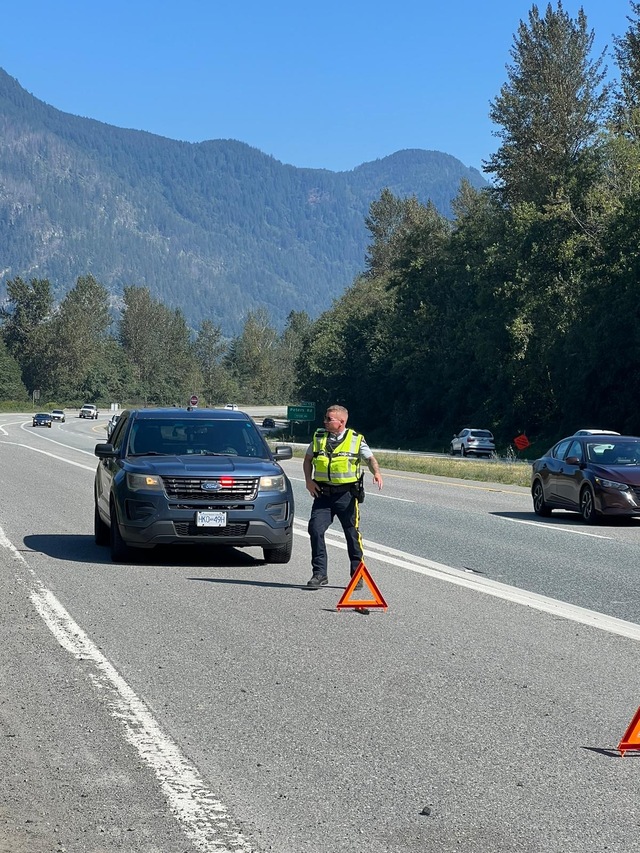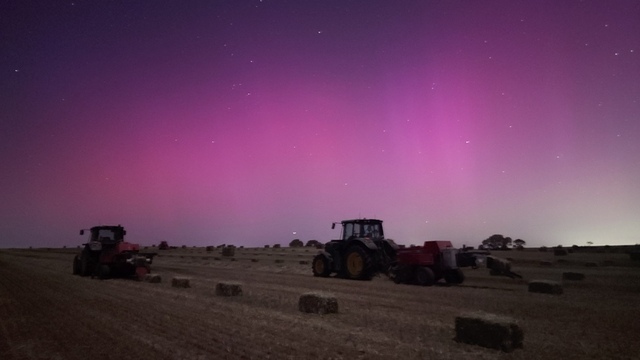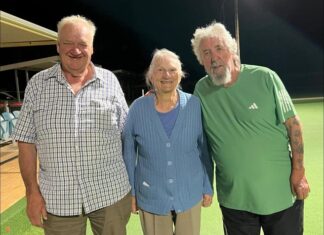Banff to Vancouver
It was a 5am start for this leg, which would be around a seven-hour drive along the Trans-Canada Highway following the Rocky Mountain railway line, to our night’s accommodation at Kelowna.
We travelled through torrential rain following the tail end of a major weather event. Our mobile phones were pinging warning of flooding in the area.
Suffice to say we survived, eventually arriving at Kelowna at around 5pm, having stopped over at several places, including watching the train as it did a fancy loop to gain the right gradient.
With the worst of the weather gone, our morning drive to Vancouver to catch the Holland America cruise ship at 10.30am for our Inland Passage trip was going to be a walk in the park.
Another 5am start for our four to five-hour trip to Vancouver (we even took a packed breakfast!).
By 7.30am we were at Hope where we wandered about looking at chainsaw art, had a coffee and admired a statue of Rambo – a statue that made sense when we heard that this pretty little town was the site of the Rambo First Blood movie.
Then it was back on the bus, but half an hour later, the bus ground to a halt, with what turned out to be a major transmission failure. Our bus was going nowhere.
Our driver Norm contacted his company, and a new bus was to be sent from Vancouver, some two hours away. Time check: It was now 8.30am, and we were meant to be boarding from 10.30am and on the ship by 2.30 at the latest.
And one of our group, Peter, had a family emergency and needed to be at Vancouver airport by 12. Driver Norm had been in contact with various people but not much was happening.
Several of our group took matters into their own hands and started trying various interesting means to flag down a car for a hitchhiking solution.
Hitchhiking in British Columbia is not illegal but it is on the Trans-Canada Highway, where we were.
After about half an hour a couple pulled up, who offered to take Peter at least halfway to Vancouver airport, but eventually they agreed to take him the whole way (Canadians are wonderful).
It was now 10.30am and a bus had not been dispatched. Things are getting a little concerning, but have no fear, for the Royal Canadian Mounted Police arrived in the form of Officer McArthy from Chilliwack.
He had heard there was a group of Australian tourists in distress on the highway, following numerous emergency calls to 911. He put out a few more traffic cones and then had a chat with our driver Norm.
By now it was 11.15am. The officer was smart, realising there was no way a bus would arrive on time and suggested a fleet of taxis from about 45 minutes away.
An hour and 14 taxis later, 38 people were transported in convoy to Vancouver port, with Officer McArthy remaining on the scene
until we were all safely on our way.
Most of the taxis were Prius-type and size, so fitting in people and large suitcases, proved a challenge.
Our taxi’s boot would not shut properly, so we endured two hours of constant beeping (like when you do not put your seatbelt on) all the way to the port of Vancouver, but our driver was too worried about getting lost to pull over and shut the boot properly.
I am not sure where the taxis came from, but I am pretty sure they had never made the two-hour journey to Vancouver before. The average cost per taxi was about $350 Canadian.
The gangplank was raised after our hosts, John and Marion, who disembarked from the final taxi, were the last to board the ship. Just a personal aside: at the time the bus broke down my desire to become a tour guide also dwindled considerably.
If it was not for the efforts of a few of the women and the Royal Canadian Mounted Police our ship would have well and truly sailed.
The bursar at the dock found our whole ordeal rather hilarious and while we waited for more taxis, we worked out his daughter was a teacher at one of the Hutterite communities we had visited a few days ago. Small world.
If you ever decide to do the Inland Passage, or catch any cruise liner, I suggest you spend the previous night in the city where you are boarding. Ships wait on the tide not the passengers.
Next time – The Inland Passage!
Baling has begun
Hay growers across the district have started baling in its many different variants, be it small squares, large squares or round rolls. Freeling farmer Corbin Schuster captured the Aurora Australis last Friday night whilst baling at Freeling.

